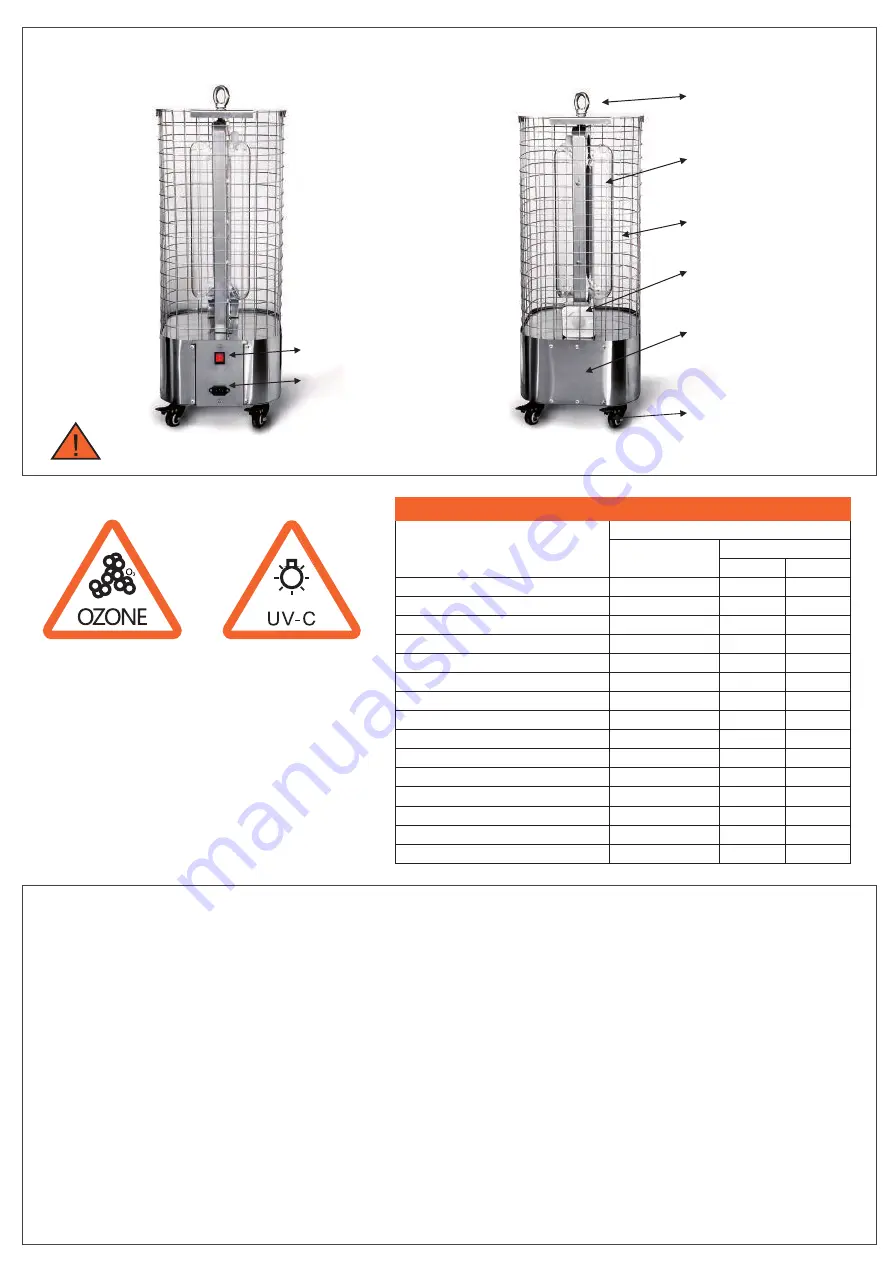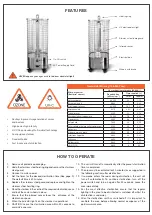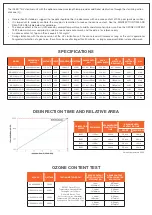
featuRes
how to opeRate
•
Destroys & prevents regeneration of viruses
and bacteria
•
High power, high intensity
•
UV-C Deep wavelength ultra-violet technology
•
Dual-purpose steriliser
•
Fixed or Mobile
•
Fast & convenient disinfection
Hoisting ring
UV electrodeless light
Stainless steel lamp guard
Infrared sensor
Electrical box
Wheels with brake
1. Remove all protective packaging.
2. Undo the stainless steel hoisting ring and remove the stainless
steel guard.
3. Connect to mains power.
4. Set the timer for the desired sterilisation time (See page 2).
The default time is 30 minutes.
5. Replace the stainless steel guard and replace and tighten the
stainless steel hoisting ring.
6. Place the steriliser in the centre of the required sterilisation space
and lock the caster wheels in place.
7. Ensure that the infrared sensor faces the entrance of the
sterilisation space.
8. When the indicator light is on the steriliser is operational.
9. CAUTION! Leave the sterilisation area within 30 seconds to
avoid UV exposure.
NeVeR expose your eyes or skin to direct ulraviolet light!
10. The unit will turn off automatically after the preset sterilisation
time is completed.
11. The area must be ventilated for 30 minutes (or as suggested in
the following section) after disinfection.
12. If someone enters the room during disinfection, the unit will
turn off automatically. To continue sterilisation, turn off the
power switch and turn on again after 30 seconds. Leave the
area immediately.
13. For the most effective sterilisation ensure that the regular
lighting in the area to be disinfected is switched off whilst the
disinfection is underway.
14. After the sterilisation unit has switched off it is important to
ventilate the area before allowing normal occupancy of the
particular work area.
On-Off switch
AC Power Supply Cord
Germicidal efficacy (185-253.7nm)
micro-organism
(Bacteria/ viruses)
uV sterilisation reference (99.999%)
Required flux
(µw sec/cm
2
)
time required (s)
5mw
100mw
Anthrax spores
46,200
35
1.75
Escherichia coli
6,600
5
0.25
Clostridium tetanus
22,000
16.7
0.83
Diptheria club
6,510
4.93
0.25
Typhoid fever
4,100
3.1
0.16
Mycobacterium tuberculosis
10,000
7.6
0.38
Gonococcus
8,500
6.4
0.32
Salmonella
7,600
5.8
0.29
Paratyphoid of Salmonella typhimurium
6,100
4.6
0.23
Dysentery
4,200
3.2
0.16
Vibrio comma cholera
6,500
4.9
0.25
Infectious hepatitis
8,000
6.2
0.31
Influenza
6,600
5
0.25
Poliomyelitis
6,600
5
0.25
COVID-19
6,600
6
0.3






